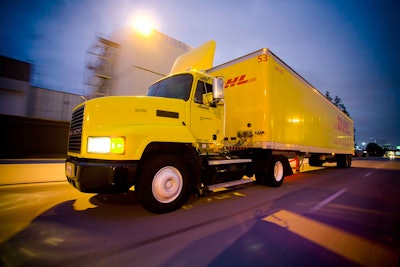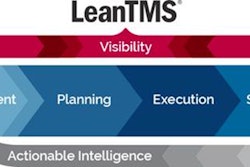
Editor’s Note: The following article is brought to you by DHL Supply Chain in partnership with the Supply Chain Network.
New research from DHL Supply Chain, the world’s leading logistics company, indicates that three out of four businesses believe that spending time and resources to improve their transportation will directly impact sales—and 83 percent are willing to pay more for better service.
The continued double-digit growth in e-commerce and the rapid rise in multi-channel distribution are driving businesses to recognize the strategic importance of transportation. In both cases, transportation management becomes more complex and more important to profitability.
Successfully managing this increased complexity can create competitive differentiation while failing to do so can increase costs and reduce service levels.
One factor increasing complexity is the way delivery times continue to be compressed. Expectations for e-commerce delivery are already moving to next-day or same-day delivery before many businesses have mastered the ability to meet the current two-day standard.
And retailers who adopt a multi-channel strategy to enable same-day and in-store pickup of e-commerce orders must deal with the changing dynamics of inventory management and store replenishment. The result is often smaller, more frequent store deliveries that, without strategic management, can lead to higher transportation costs.
Service expectations beyond delivery times are also growing, resulting in a host of new last-mile delivery options. Customers expect items to always be in-stock and available. High-value service offerings such as installation, set-up and product configurations and flexible or free return policies plus rapid or immediate problem resolution are also key offerings.
Another factor increasing complexity is urbanization. As populations continue to migrate to urban areas, the challenge of reaching these customers increases. In fact, urbanization was the biggest concern for transportation decision makers participating in the survey. They believe that issues inherent to urbanization such as congestion, tolls for entering urban areas during peak business times and environmental concerns regarding transportation’s carbon footprint will have a significant impact upon their business.
They also believe that technology is and will continue to be central to transportation success, and that artificial intelligence and big data will help them enhance their business by optimizing their networks in real-time to address the urbanization challenges. But at this point, only 23 percent have incorporated these technologies into their business.
The research summarized in the report “The Logistics Transport Evolution: The Road Ahead” is based on information provided by more than 200 industry respondents—transport buyers and operations pros—based in Asia Pacific, Europe, Latin America and North America.
The report reinforces the idea that ground transportation today is a business differentiator rather than a commodity, and successfully managing today’s transportation challenges requires an orchestrated approach that begins with efficient warehouse processes and extends to the last mile.
As third-party logistics providers such as DHL Supply Chain continue to invest in emerging technologies, while building on years of experience in e-commerce and transportation management, they become more than just a resource for driving down supply chain costs. They become enablers of business growth by improving service levels, ensuring adequate capacity and minimizing complexity.
“The strategic value of transport is being recognized as a game changer,” said Jim Monkmeyer, president of transportation, DHL Supply Chain. “It has evolved beyond the functional level and is now seen as a business differentiator, adding a strategic layer to an organization that cannot be discounted. Companies that recognize transportation trends and embrace them will be the real winners over the next several years.”
Just over half (55 percent) of survey participants believe they currently have the software tools at hand to integrate transportation into their business. This varies by region—only 43 percent of North American participants indicated that this is the case, while 76 percent of LATAM participants were confident that they are equipped.
But even that depends on the level of expectations. North American shippers seek to leverage and incorporate analytics and big data beyond managing transportation. Emerging markets such as LATAM may focus more on transactional data requirements. Regardless, as regions grow and mature, expectations will only increase in every region.
The survey also asked participants to identify their primary reasons for choosing a 3PL. The top requirement: the ability to manage multiple transportation solutions that solve all of a shipper’s ground transportation needs as consumer expectations continue to grow.
It’s clear that decision makers understand the pressures such expectations mean to their success. It’s also clear that many recognize that successful transportation solutions for today, and in the near future, are vital. In partnering with 3PLs, they seek to gain a competitive advantage with a smart, focused partner—rather than a commodity service provider—that can optimize cost and service through its experience, expertise and vision.
Transportation as a differentiator for a company’s success doesn’t have to be difficult with the right partner.
To learn more about how you’ll succeed, read the full report—available here.

















